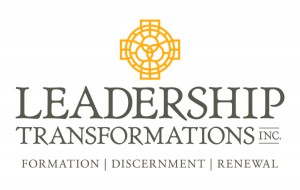The Millennial Leader – Part 1
At a recent gathering of spiritual formation leaders working in higher education, I was asked to provide some reflections on how millennials (those who are in their 20’s today) are growing as leaders. With our work at Gordon-Conwell Theological Seminary’s Pierce Center for Disciple-Building as my back drop, I shared with the group how optimistic and hopeful I am regarding this generation.
Unfortunately, those who have researched millennials tend to critique them as narcissistic, entitled, lazy, and disrespectful. Other words that describe them include: confident, connected, educated, team oriented, sheltered, “me” generation. They are sometimes referred to as the “five point harness” generation…those who grew up well protected in car seats that met ever increasing strict guidelines, well protected from any potential harm or danger. They were the ones who were treated extra special by teaches and coaches…the ones who got trophies on the soccer field regardless of their performance. And, they are the generation that has grown up with the Internet, knowing more about technology than any previous group. As a result, they consider themselves special and like to be treated that way.
Who are the millennials in your sphere of influence? Can you define some of the traits that are most reflected by millennials? In what ways are you relating to millennials and how concerned or encouraged are you about this particular generation?
One of the more gracious articles I found on millennials in general, and as leaders in particular, highlighted 8 characteristics of the millennial leader (from the Boston College Center for Work and Family Executive Briefing Series):
1. Active attention (just like they value, so they will offer to others)
2. Transparency (they are more engaged when they are able to learn and understand as much as possible from their employer and team members)
3. Relevancy for others (seeking meaning in their work, and will impart relevance to their employees)
4. Relevancy for oneself (sensitized to others as well as their own growth and development pathway)
5. Passion (passionate about their work, and infuse passion into their workplace and community)
6. Accountable leadership (more likely to reject hierarchical leadership/power and will lead by team motivation, collegiality and accountability)
7. Autonomy through flexibility (when and where one works during the day is perceived as a sign of being respected; they are open to non-traditional behaviors that provide flexibility and autonomy)
8. Self-care as a reflection of organizational health (they see a direct connection between their own health and the health of their workplace; are more sensitive to ways of developing healthier work-life integration)
In addition to these more secular leadership insights, I offered a few more from my observations of millennials as spiritual leaders…which will be the focus of my next blog entry!
The Millennial Leader – Part 1 Read More »

